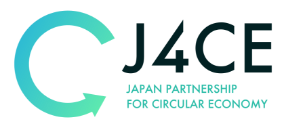Contribution to Circular Economy through the Provision of Our Unique ESG Financing Framework "MY Sustainable Finance"
[Company / organization] MEIJI YASUDA LIFE INSURANCE COMPANY
Start Period
April 2023 - September 2024
Description of Technology and Business Model
To meet the diverse ESG financing needs of corporate customers, we have established and started operating "MY Sustainable Finance," our unique comprehensive ESG financing framework that covers three products: "Green Loans," "Social Loans," and "Sustainability-Linked Loans."
Achievements and Goals
As of the end of September 2024, we handled 92 cases amounting to 121 billion yen. The main financing examples contributing to the circular economy in FY2024 are as follows:
①: Chemical Industry
Green Loan Use of Funds:
Manufacturing facilities and R&D for products made from biomass resources.
Overview:
The product is a plastic product made from biomass, which has similar functions to general-purpose plastics, thus expanding its use in a wide range of applications.
According to the Ministry of the Environment, biomass-derived plastics can reduce CO2 emissions by 4.3 to 4.9 kg per kilogram compared to fossil fuel-derived plastics, reducing greenhouse gases by approximately 70-74%. Additionally, the product has high biodegradability, contributing to solving environmental pollution problems caused by plastic waste.
②: Steel Industry
Green Loan Use of Funds:
Renewal of mobile crushing equipment at a slag processing plant.
Overview:
This equipment renewal involves recycling blast furnace slag, one of the raw materials used by cement manufacturers, into steel slag mixed roadbed material.
Cement is generated through a "calcination process" [A], but steel slag mixed roadbed material can be used as a raw material without going through the calcination process [B], contributing to CO2 reduction.
The environmental improvement effect contributes to a CO2 emission reduction unit base of -0.309t-CO2 (= [B] - [A]), and the sustainability of the environmental improvement effect is expected to last beyond the loan period, considering the technical roadmap of the supply chain (assuming continued use of blast furnaces) and the lifespan of the crusher.
Furthermore, blast furnace slag is designated as industrial waste (requiring disposal at a final disposal site), but recycling blast furnace slag contributes to resource recirculation. This initiative aligns with the Ministry of Economy, Trade and Industry's 3R policy (Waste Treatment and Recycling Guidelines) and contributes to circular business practices.
URLs Introducing the Efforts
(Framework Handling News Release)
https://www.meijiyasuda.co.jp/profile/news/release/2022/pdf/20221229_01.pdf

